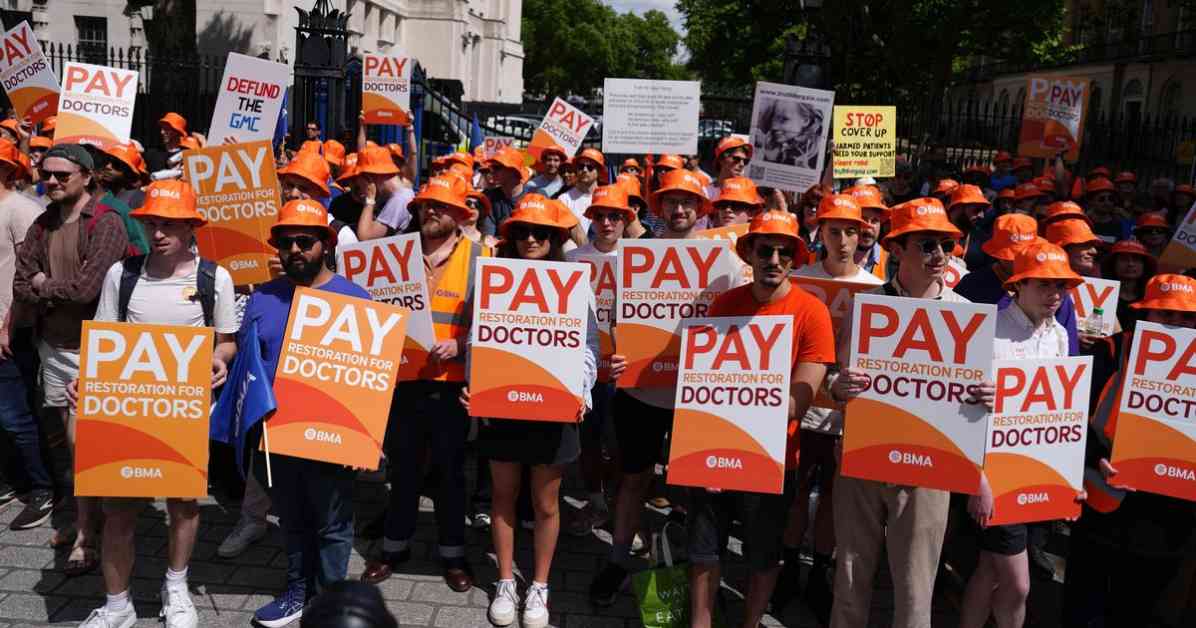Junior Doctors in England Embrace Government Pay Offer: A Victory for Healthcare Workers
In a significant development for healthcare professionals in England, junior doctors have recently voted to accept a Government pay deal that will result in a substantial increase in their salaries. The British Medical Association (BMA) announced that the pay offer, averaging 22.3 per cent over a two-year period, has been accepted by the junior doctors committee (JDC) in England. This decision comes after 66 per cent of junior doctors voted in favor of the deal, signaling a majority agreement within the medical community.
The impact of this pay deal is substantial, with junior doctors set to see their pay rise by an average of 4.05 per cent on top of their existing pay award for 2023/24. This increase will be backdated to April 2023, providing a much-needed boost to the financial well-being of these essential healthcare workers. Additionally, each part of the pay scale will receive a 6 per cent uplift, along with an additional £1,000, as recommended by the Review Body on Doctors’ and Dentists’ Remuneration (DDRB), with an effective date of April 1, 2024.
Subheading: Impact on Junior Doctors’ Salaries
The implications of this pay deal are significant for junior doctors across England, with tangible improvements in their financial compensation. For instance, a doctor beginning foundation training in the NHS will experience a base pay increase to £36,600, up from approximately £32,400. This rise in salary reflects the recognition of the valuable work done by junior doctors and aims to attract and retain talent within the healthcare sector. Similarly, a full-time doctor entering specialty training will witness a basic pay rise to £49,900 from around £43,900, further enhancing their earning potential and rewarding their dedication to patient care.
Subheading: Enhancing Recruitment and Retention in Healthcare
The decision to accept the Government pay offer is not only a victory for junior doctors but also a strategic move to improve recruitment and retention within the healthcare sector. By providing competitive salaries and opportunities for professional growth, the NHS can attract top talent and ensure a skilled workforce to meet the evolving healthcare needs of the population. This pay deal sends a positive message to healthcare workers, reaffirming their value and commitment to delivering high-quality care to patients across the country.
Subheading: The Future of Healthcare Workforce
Looking ahead, the acceptance of the Government pay offer by junior doctors in England sets a precedent for the future of the healthcare workforce. It underscores the importance of fair compensation, career progression, and overall well-being for healthcare professionals who play a crucial role in the delivery of healthcare services. By investing in the workforce and recognizing their contributions, the healthcare system can strengthen its foundation and ensure sustainable healthcare delivery for years to come.
In conclusion, the acceptance of the Government pay offer by junior doctors in England marks a significant milestone in the ongoing efforts to support and empower healthcare workers. This pay deal not only reflects a fair and just compensation for the essential services provided by junior doctors but also highlights the importance of investing in the healthcare workforce to secure the future of healthcare in the UK. As we move forward, it is essential to continue advocating for the well-being and professional development of healthcare professionals, ensuring a resilient and effective healthcare system for all.












